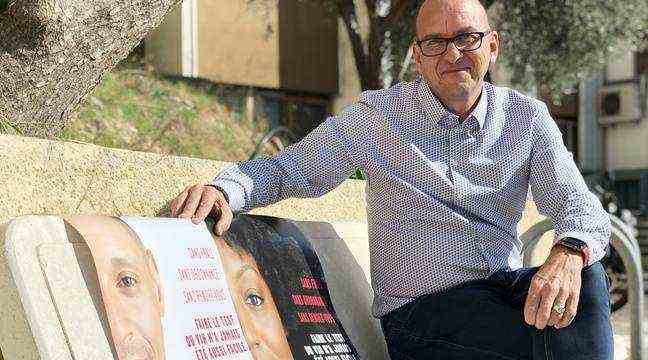Dr Pascal Pugliese is also a doctor at the CHU de Nice and president of the Regional Coordination for the fight against HIV infection (Corevih) in Paca – F. Binacchi / ANP / 20 Minutes
The news was expected. It was finally formalized by the Minister of Health Olivier Véran, himself, at the end of last week. As of Tuesday, PrEP, the prophylactic treatment to prevent HIV infection, can be prescribed directly by all doctors, including general practitioners.
What further curb the epidemic, according to the Niçois Pascal Pugliese, president of the French Society against AIDS. And this, while the drop in the number of screenings observed during the health crisis, may raise fears of a deterioration of the situation.
What is this decision about PrEP going to change, in concrete terms?
We are going to reach a much larger audience and this is a significant new step forward in the fight against AIDS. The use of two molecules as a prophylaxis, in particular with certain populations at risk, has been permitted in France since 2016. In addition to the condom and the treatment of HIV-positive people. But, only hospitals and Cegidds [Centres gratuits d’information, de dépistage et de diagnostic] could initiate this protocol. Apart from the fact that going to these structures could hold some people back, there was also the question of distance. It is clear that the 30,000 people who benefit from PrEP, mainly men who have sex with men [HSH], are mainly in metropolitan areas.
So the idea is to trivialize this treatment?
Exactly. It is to put PrEP on the same level as using a condom. Although, it is important to remember, the condom also protects against other sexually transmitted infections. PrEP is a complement, it is part of a global strategy to fight HIV.
What is the quantified objective with this new decision?
We could imagine going from 30,000 to 60,000 people within two to three years. But the use of PrEP is not set in stone. This is something that singles will stop taking when in a relationship. And vice versa. Opening it to all physicians will increase this flexibility. But PrEP isn’t just for MSM. People who can be multi-partners at some point in their life will have a greater vulnerability to HIV. The idea is also to reach also those who come from countries with a high prevalence of HIV, in particular sub-Saharan Africa.
Are doctors going to have to train?
An e-learning platform is open to allow them to upgrade in two or three hours. They can find guidance on how to approach sexual health issues with their patients.
What are the results ?
It should be noted that we are looking back on this treatment, which has been used for a long time for HIV-positive people. And it is very well tolerated. Rarely, kidney function may deteriorate, but patients taking PrEP are monitored anyway. In the Nice region, we have observed a drop in the number of new contaminations of around 40%.
The number of screenings fell by 10% with the health crisis, but so did interactions, at least logically …
Studies were done, especially among MSM, and even during periods of confinement, there were a small number of people who continued to be exposed. It is therefore very important to resume screening as soon as possible as we are entering a period that we all hope will be a little lighter. The average time between infection and diagnosis is still 3 years in France and that is a lot of wasted time.

